- Home
- Неизвестный
Star Trek - DS9 011 - Devil In The Sky
Star Trek - DS9 011 - Devil In The Sky Read online
Star Trek - DS9 - 011 - Devil In The Sky
CHAPTER 1
Station Log, Commander Benjamin Sisko, Stardate 46384.1: In hopes of reviving the Bajoran mining industry, left devastated after the Cardassian Occupation, the Feder- ation has arranged, in cooperation with private Bajoran investors, to transport a family of Hortas to Bajor. In theory, the Hortas will use their natural tunneling abilities to find pockets of minerals and ore which the Cardassians either missed or deemed too difficult to extract.
We are currently awaiting the arrival of the Federa- tion cruiser Puyallup, en route from Janus VI. I have dispatched a team of officers to welcome the Hortas to Deep Space Nine....
THE AIRLOCK DOOR rolled out of the way like a gear in some enormous clockwork mechanism. In contrast to the grim gray walls of the docking ring, the circular door was the dull red color of drying human blood.
Damn Cardassian architecture, Major Kira Nerys thought as she walked briskly through the airlock toward Docking Port g; even after so much time on the station, I sti# haven't grown accustomed to the ugliness of it all. Cardassian aesthetics are on a par with their ethics, she mused; that is, they don't exist.
Kira suspected that Commander Sisko would not approve of such sentiments, at least in public. His Federation was annoyingly reluctant to criticize the cultures of even their most loathsome enemies. Hell, they had even made peace with the Klingons. Some- times she thought it was a miracle that the entire Federation hadn't been conquered centuries ago. But then, Kira wasn't sure she believed in miracles any- more.
Another airlock door, its gearlike teeth crimson as a Bajoran sea-tiger, opened before her and the Bajoran major found herself in a small waiting area outside the docking port. A triangular display, lit in shades of red and blue, announced the arrivals and departures of various spacecraft. An outdated map of the station, mounted on the wall under a sheet of transparent aluminum, waited to mislead newcomers to DS9. Two of her fellow officers, Lieutenant Jadzia Dax and Dr.
Julian Bashir, glanced toward her as she approached them. Although a stark metal bench, of Cardassian design, was bolted to both the floor and the adjoining wall, the pair of officers remained standing. Kira didn't blame them; uncomfortable and uninviting, the bench resembled a torture device better suited to a dungeon than a space station.
Dax gave Kira a friendly smile and nod, while Bashir kept on babbling at the young woman, his hands waving enthusiastically as he spoke. As usual, Kira noted, Bashir was hovering around Dax's lithe, attractive form just like a Ferengi would. Why Dax had never told Bashir just where he could beam himself Kira had never understood.
"As a specialist in multispecies medicine," the doctor was saying, "naturally I find the Hortas fasci- nating. They were the first silicon-based life-form humanity ever encountered. Not only that, they also secrete a powerfully corrosive acid that allows them to move through solid rock the same way humanoids move through air. They actually digest raw iron and other minerals!" What was Bashir most enthralled with, Kira won- dered: Dax's bright blue eyes and gracefully spotted neck--or the sound of his own voice? Please, Jadzia, Kira thought silently. Don't encourage him.
"Really, Julian?" Dax said indulgently. "That's very interesting." Oh, no. Kira sighed and shook her head. There was no shutting him up now. Sure enough, Bashir leaned against the bulkhead wall, in what he doubtless con- sidered a suave and dashing manner, and resumed his lecture. A Starfleet medical pouch, strapped over his shoulder, dangled next to his side. "Then, of course," he said casually, his eyes never once leaving Dax's attentive face, "there's the Horta's very unusual re- productive cycle.... " Oh, give me a break, Kira fumed. Typically, howev- er, Dax stood by cahnly, with her hands clasped loosely behind her back. Although Dax had a fun- loving side that Kira had learned never to underesti- mate, the Trill science officer often exuded a sense of effortless serenity that was almost spiritual. Not for the first time, Kira was secretly envious. Is Dax what Bajoran women were like, she wondered, before dec- ades of Cardassian oppression transformed us into refugees and revolutionaries? CouM I have ever known that kind of peace? Kira fingered the silver earring dangling from her right ear. The Bajorans had been a deeply religious people once. Kira liked to think she still was, and yet her spirit was often troubled.
She paced impatiently back and forth across the waiting area. Her dark red boots rapped against the bare, uncarpeted floor. According to the display, the Puyallup was now a few minutes late. What the hell could be taking them so long? She had more impor- tant things to do than watch another of Bashir's futile attempts to flirt with Dax.
"I've heard," Dax said to Bashir, "that the Hortas only breed once every fifty thousand years." Kira groaned quietly and rolled her eyes. Sometimes she suspected that Dax actually enjoyed playing these games with Bashir. Kira wouldn't put it past her; after all, the Trill genuinely enjoyed socializing with Ferengi.
"That's a common misconception," the doctor ex- plained. "It's true that every five hundred centuries the entire species dies out, except for one Horta who cares for the thousands of eggs left behind, from which, eventually, a brand-new race of Hortas is born.
But, prior to these epochal near-extinctions, there are interim generations of Hortas who reprOduce regu- larly." Frankly, Kira didn't care whether each individual Horta emerged independently from some primordial lava flow, just so they performed as advertised, and found new treasures in Bajor's pillaged mines. She almost said as much, but Jadzia, damn her, gave Bashir another too-perfect smile. "How intriguing, Julian. From a medical perspective, are there any advantages to this cycle?" "That's a very perceptive question, Jadzia!" Bashir gushed. Kira prayed to all the Prophets that the Federation cruiser would arrive soon. She tapped her foot impatiently against the floor, wishing it were Bashir's larynx instead. "Of course, the study of Horta biology is less than a hundred years old, but our best theory is that the cycle is a form of population control. Hortas are basically ageless, indestructible, and have no natural predators. Thus, every fifty millennia, one generation of Hortas disappears to make room for their descendants while the primary Mother Horta, selected through a process we still don't entirely understand, provides a form of cultural continuity." The young doctor leaned toward Dax, caught up by the joys of science, or hormones, or some combination thereof. "Think of it! To be the adopted mother to an entire new generation of beings. Imagine what the sense of responsibility..." "Well," Kira interrupted him, hoping to forestall another dissertation. "I look forward to meeting the Hortas." And soon, she prayed. Exhausted already by Bashir's unending chatter, she found herself seriously contemplating the Cardassian-built bench, unpadded metal slats and all.
"You might want to brace yourself, Major," Bashir said. Although addressing Kira, he edged even nearer to Dax. His dark eyes glowing, clearly convinced that the lovely Trill was hanging on his every word, he lowered his voice to a conspiratorial whisper. "Just between the three of us, a Horta is not the most attractive of beings. In fact," he said, winking at Dax and working very hard at being casually, shockingly, endearingly irreverent, "a fully grown Horta resem- bles nothing as much as an oversized slug made out of molten rock!" Abruptly, the smile disappeared from Dax's lips.
The station's science officer remained poised and at ease, but her voice as she spoke was markedly colder than before. "Some of my closest acquaintances look like slugs, Doctor, as you may recall." She turned her back on Bashir and gracefully walked away, a three- hundred-year-old symbiont sharing a fresh new humanoid body.
The crestfallen look that came over Bashir's face, as he suddenly realized his faux pas, was absolutely priceless, at least as far was Kira was concerned. Gone was
the confident lecturer and ladies' man of mere moments ago. "Jadzia," he stammered breathlessly, "I didn't mean... that is, I certainly never intended to... you know I have nothing but the highest re- spect for you and... well, if I can explain... !" From the other side of the room, and across as much empty space as possible, Dax glanced back at him over her shoulder. "By the way, Julian, I was excavating planetary cores alongside dozens of Hortas while you were still learning to crawl." In other words, you cocky young fool, Kira thought, she's been humoring you all along. This was getting more entertaining by the moment; she'd have to remember to tell Odo about it later. For the moment, Dax seemed to have rendered Bashir speechless. It wouldn't last, of course, but Kira intended to enjoy the spectacle while she could.
A short chime from her comm badge broke the momentary silence. Damn, Kira thought, just as Bashir was digging his own grave, with Dax maybe ready to throw in a few handfuls of dirt. The doctor had been saved, quite literally, by the bell. She patted the badge on her left collar. "Kira here." Commander Sisko's deep voice came over the comm. "We may have a problem, Major. Our sensors detect another ship on an intercept course with the Puyallup. The new ship's not responding to our hails, and it appears to have come from Cardassian space." Cardassian! Kira snapped into combat mode, all thought of Bashir's infatuations and embarrassments instantly forgotten. Her fists clenched automatically.
Glancing at the map on the wall, mentally adjusting for its various inaccuracies, she swiftly deduced the location of the nearest runabout. "On my way," she told Sisko. "I'm taking Dax and Bashir on the new runabout, what's it called, the Amazon." "Understood," Sisko replied. "Be careful." Kira jerked her head toward the exit and took off at a steady run. She squeezed impatiently past the slowly rolling door as soon as a thin crescent of empty space opened up. Wordlessly, the two Starfleet officers fol- lowed quickly behind her. Bashir clutched his medical pouch as he ran after Dax and Kira. The Amazon waited in a service bay in the habitat ring, on the other side of the closest crossover bridge. Take the turbolift, Kira thought; that wouM be faster than on foot. In her mind, she was already at the helm of the runabout, racing away from the station, ready to engage the enemy once more.
She had no problems with slugs--Horta, Trill, or Terran. Cardassians, on the other hand, were the closest thing to sentient slime she knew.
Phasers fired in her imagination, blasting the slime out of existence. She was ready. She was willing.
If only she could get there in time.
Titan's large, lumpish body made a grinding sound as she tunneled toward the bridge of the Puyallup. The latter half of the small cruiser had been packed with lightweight synthetic concrete, the better to simulate the Horta's usually solid environment, but Ttan sensed empty air only inches away. She burned through a narrow partition of concrete and slid down the corridor toward the bridge. Behind her, traces of vapor rose from the freshly created tunnel. As usual, the Nothingness her Federation allies called "an at- mosphere" tickled the nerves of her outer carapace and made her feel uncomfortably exposed. Prime Mother, she entreated silently, let the worldstuff of Bajor be firm and hard.
The doorway opened before her and she entered the bridge. A metallic semicircle large enough to accom- modate a three-person crew, the chamber reeked to Ttan of tritanium and duranium. Good, solid con- struction, if a bit too airily spacious for her tastes.
Captain Dawson rose from the command seat and greeted Ttan as the Horta rustled forward, her lower fringes brushing the cool, metallic floor. Dawson was a tall, stocky Terran whose jawline was decorated with a reddish fringe of its own. Ttan believed it was a male, but wasn't quite sure. Humanoids were such peculiar entities: all carbon softness and pointy ap- pendages. If it weren't for their calcium framework, and a smattering of iron and other minerals, they'd bear no resemblance to life as she knew it.
"Prospector Ttan," it (he?) greeted her enthusiasti- cally. "Thank you for joining us. We should be arriving at Deep Space Nine shortly." "Fine Faring to you, Captain." The Federation translator affixed to Ttan's husk gave her a melodious voice with a slight East Indian accent. "And Smooth Voyaging to you as well, Navigator Shirar." Ttan sensed the presence of the Vulcan navigator before Shirar stepped away from her console and into view. The currents of copper flowing through the navigator were unmistakable.
"Greetings, Prospector," Shirar said. Dark strands of protein fibers, neatly aligned in descending parallel rows, framed the Vulcan's pale features. The points of her auditory organs--"ears," Ttan recalled--were sharp as stalagmites, Previous conversations had made it clear to Ttan that Shirar was female. "I trust your offspring are well." "Yes, very." Ttan thought proudly of the twenty eggs tucked safely away in a small vault she had carved herself out of the concrete Starfleet had provided.
"And many thanks once more for the extra shielding you devised for my pilgrim infants." Shirar nodded her chin slightly. "Given the impor- tance and relative fragility of your eggs, it was only logical to preserve them in a stasis field independent of regular ship systems." "Not, I hasten to add," Captain Dawson said, "that we anticipate any danger to your children. Still, it always pays to be careful, especially where little ones are concerned. I have three of my own, you know." Three eggs? Ttan briefly reconsidered Dawson's gender. Then the captain called her attention to the large viewscreen at the opposite end of the bridge. The visual display, which occupied nearly the entire for- ward wall, revealed a vast and terrifying blackness in which distant stars seemed to race past them like sparks thrown off by struck flints.
The Emptiness Beyond the Emptiness. Ttan had experienced space before, but still that vast and endless void, so different from the subterranean home of her people, both thrilled and intimidated her. It was so open. How could any Horta survive without the reassuring, aU-surrounding press of rock about her, and where, she wondered, had she found the courage to cross this immense absence in order to carve new tunnels on a distant world? Ttan felt a surge of pride and anticipation. What an opportunity to burn her mark into the Stone of Memory. And maybe, just maybe, centuries hence, she or one of her children might become the Prime Mother of the next Renewal?
Ttan would never be so immodest as to admit such an ambition to any other living being, but if she truly strived and succeeded at the great task before her.
well, she could always dream, couldn't she?
"Approaching DS9," an eager young voice an- nounced. A Benzite, Ttan realized, recognizing the distinct odor of chlorine from the artificial breathing apparatus affixed under the ensign's chin. Although he was basically humanoid in shape, and clad in a standard blue Starfleet uniform, the Benzite's face and hands were protected by a pale blue chitinous covering with glistening silver undertones. His ears, located higher on his skull than either Dawson's or Shirar's, were also deeply recessed and less ornate than other humanoids'. Ttan was proud that she could identify them at all. With his smooth, hairless shell, the Benzite somehow seemed more convincingly alive than the other humanoids on the Puyallup, although of course Ttan was far too tactful to say so.
"Go to impulse, Ensign," Dawson instructed.
"Yes, sir!" the Benzite responded, expelling a gust of carbon trichloride. Seconds later, the ever-present dilithium aftertaste Ttan had learned to associate with warp travel dissipated from the bridge. The streaking stars before her slowed in their fiery trajec- tories past the ship. They were almost there, she thought in wonder. Bajor: her new home and her children's future birthplace.
The fibrous mineral filaments around her base rustled with excitement as she edged nearer the viewscreen. Captain Dawson stepped beside her. He stroked the fringe under his own chin.
"Let me show you one of the more interesting local sights," he said cheerfully. "Ensign, lateral view, medium magnification." "Yes, sir," the young Benzite responded from his post. Instantly, the image on the viewer shifted, revealing what appeared to be a moon or planetoid much closer to the ship than the faraway stars. The moon was large and irregularly shape
d, marked by a chaotic pattern of gray-brown peaks and shadowy craters, divided by intersecting veins of some rough, reddish material. Unlike most other moons, this ob- ject could not be described as a globe; unknown forces had deformed its mass, flattening its eastern hemi- sphere and causing the other half to stretch and protrude along random stress lines, like a human skull that has been smashed against a hard surface, with its shell distorted but barely holding together, and bits of soft tissue jutting out through the cracks. The moon's coarse and mottled exterior suggested eons of violent volcanic activity, resulting in a cracked, scarred, and pitted terrain that had obviously never known the patient polishing of wind or water. In many ways, Ttan noted, the huge floating rock bore a distinct resemblance to a Horta. She wondered if that was why Dawson had invited her to the bridge.
If the captain had observed the similarity, he did not comment on it. "What you're looking at," he said, "is the most distant of Bajor's moons. They call it The Prodigal, because it has an unusually wide and ellipti- cal orbit which brings it within sight of Bajor only once every five years. More importantly, from our point of view, its orbit should bring it near Deep Space Nine in a couple of days. If you're still on the station then, the view should be spectacular. Something about the moon's composition causes it to glow whenever it comes into close proximity with what we now know to be the entrance to the wormhole.

 The Bolivian Diary
The Bolivian Diary Caffeine Blues_ Wake Up to the Hidden Dangers of America's #1 Drug ( PDFDrive )
Caffeine Blues_ Wake Up to the Hidden Dangers of America's #1 Drug ( PDFDrive ) The Empty House
The Empty House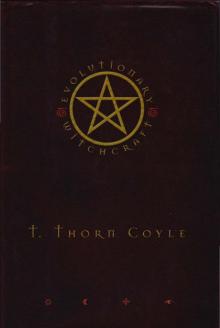 T Thorn Coyle Evolutionary Witchcraft (pdf)
T Thorn Coyle Evolutionary Witchcraft (pdf)![K J Emrick & Kathryn De Winter - [Moonlight Bay Psychic Mystery 01-06] - A Friend in; on the Rocks; Feature Presentation; Manor of; by Chocolate Cake; A-Maze-Ing Death (retail) (epub) Read online](http://freenovelread.comhttps://picture.efrem.net/img/nienyi/k_j_emrick_and_kathryn_de_winter_-_moonlight_bay_psychic_of_by_chocolate_cake_a-maze-ing_death_retail_epub_preview.jpg) K J Emrick & Kathryn De Winter - [Moonlight Bay Psychic Mystery 01-06] - A Friend in; on the Rocks; Feature Presentation; Manor of; by Chocolate Cake; A-Maze-Ing Death (retail) (epub)
K J Emrick & Kathryn De Winter - [Moonlight Bay Psychic Mystery 01-06] - A Friend in; on the Rocks; Feature Presentation; Manor of; by Chocolate Cake; A-Maze-Ing Death (retail) (epub) Next Day of the Condor
Next Day of the Condor Onyx
Onyx The Woodcock Game: An Italian Mystery Novel
The Woodcock Game: An Italian Mystery Novel Granta 122: Betrayal (Granta: The Magazine of New Writing)
Granta 122: Betrayal (Granta: The Magazine of New Writing) One More Dream
One More Dream Cosa Nostra by Emma Nichols) 16656409 (z-lib.org) (1)-compressed
Cosa Nostra by Emma Nichols) 16656409 (z-lib.org) (1)-compressed Cowboy by J. M. Snyder
Cowboy by J. M. Snyder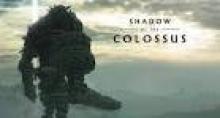 Colossus
Colossus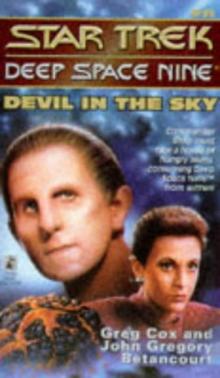 Star Trek - DS9 011 - Devil In The Sky
Star Trek - DS9 011 - Devil In The Sky Fright Mare-Women Write Horror
Fright Mare-Women Write Horror The Future Is Japanese
The Future Is Japanese In the Witching Hour
In the Witching Hour Mammoth Books presents Wang's Carpets
Mammoth Books presents Wang's Carpets The Cradle King: The Life of James VI and I, the First Monarch of a United Great Britain
The Cradle King: The Life of James VI and I, the First Monarch of a United Great Britain Stalking Moon
Stalking Moon Hostage To The Devil
Hostage To The Devil![Harris, Daisy - Mere Passion [Ocean Shifters 2] (Siren Publishing Classic) Read online](http://i1.bookreadfree.com/i/03/23/harris_daisy_-_mere_passion_ocean_shifters_2_siren_publishing_classic_preview.jpg) Harris, Daisy - Mere Passion [Ocean Shifters 2] (Siren Publishing Classic)
Harris, Daisy - Mere Passion [Ocean Shifters 2] (Siren Publishing Classic) Day, Sunny - Hot in Space (Siren Publishing Ménage and More)
Day, Sunny - Hot in Space (Siren Publishing Ménage and More) Five Books Of The Lives, Heroic Deeds And Sayings Of Gargantua And His Son Pantagruel
Five Books Of The Lives, Heroic Deeds And Sayings Of Gargantua And His Son Pantagruel I Never Thought I'd See You Again: A Novelists Inc. Anthology
I Never Thought I'd See You Again: A Novelists Inc. Anthology Billion dollar baby bargain.txt
Billion dollar baby bargain.txt![Chenery, Marisa - Turquoise Eye of Horus [Egyptian Shifters 1] (Siren Publishing Classic) Read online](http://i1.bookreadfree.com/i1/03/26/chenery_marisa_-_turquoise_eye_of_horus_egyptian_shifters_1_siren_publishing_classic_preview.jpg) Chenery, Marisa - Turquoise Eye of Horus [Egyptian Shifters 1] (Siren Publishing Classic)
Chenery, Marisa - Turquoise Eye of Horus [Egyptian Shifters 1] (Siren Publishing Classic) Cat Magic
Cat Magic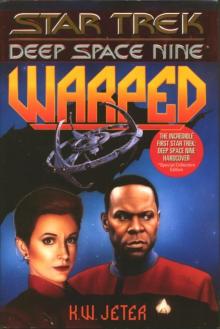 Star Trek - DS9 - Warped
Star Trek - DS9 - Warped Catherine Coulter - FBI 1 The Cove
Catherine Coulter - FBI 1 The Cove Miranda Lee -The Blackmailed Bridegroom
Miranda Lee -The Blackmailed Bridegroom The Seashell Anthology of Great Poetry
The Seashell Anthology of Great Poetry Dragon Moon
Dragon Moon The Social Costs of Pornography: A Collection of Papers
The Social Costs of Pornography: A Collection of Papers That Is Not Dead
That Is Not Dead Best New Horror: Volume 25 (Mammoth Book of Best New Horror)
Best New Horror: Volume 25 (Mammoth Book of Best New Horror) This Christmas by J. M. Snyder
This Christmas by J. M. Snyder Faerie Cake Dead
Faerie Cake Dead CS-Dante's Twins
CS-Dante's Twins EFD1: Starship Goodwords (EFD Anthology Series from Carrick Publishing)
EFD1: Starship Goodwords (EFD Anthology Series from Carrick Publishing) Echo Burning by Lee Child
Echo Burning by Lee Child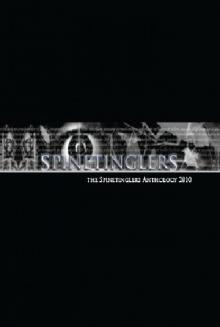 The Spinetinglers Anthology 2010
The Spinetinglers Anthology 2010 Wild Hearts
Wild Hearts Violet Winspear - Sinner ...
Violet Winspear - Sinner ... Broken Angels
Broken Angels FearNoEvil
FearNoEvil![Santiago, Lara - Range War Bride [Tasty Treats 11] (Siren Publishing PolyAmour) Read online](http://i1.bookreadfree.com/i1/03/30/santiago_lara_-_range_war_bride_tasty_treats_11_siren_publishing_polyamour_preview.jpg) Santiago, Lara - Range War Bride [Tasty Treats 11] (Siren Publishing PolyAmour)
Santiago, Lara - Range War Bride [Tasty Treats 11] (Siren Publishing PolyAmour) 8 Great Hebrew Short Novels
8 Great Hebrew Short Novels This Is How You Die: Stories of the Inscrutable, Infallible, Inescapable Machine of Death
This Is How You Die: Stories of the Inscrutable, Infallible, Inescapable Machine of Death The Steampowered Globe
The Steampowered Globe While We Wait by J. M. Snyder
While We Wait by J. M. Snyder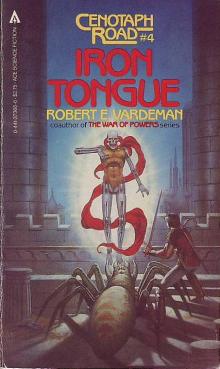 Iron Tongue cr-4
Iron Tongue cr-4![Stieg Larsson [Millennium 02] The Girl Who Played with Fire v5.0 (LIT) Read online](http://i1.bookreadfree.com/i1/03/31/stieg_larsson_millennium_02_the_girl_who_played_with_fire_v5_0_lit_preview.jpg) Stieg Larsson [Millennium 02] The Girl Who Played with Fire v5.0 (LIT)
Stieg Larsson [Millennium 02] The Girl Who Played with Fire v5.0 (LIT)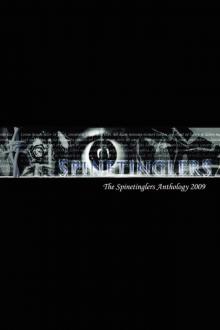 The Spinetinglers Anthology 2009
The Spinetinglers Anthology 2009 Bowles, Jan - Branded by the Texas Rancher (Siren Publishing Classic)
Bowles, Jan - Branded by the Texas Rancher (Siren Publishing Classic) Brown, Berengaria - Vivienne's Vacation (Siren Publishing Ménage and More)
Brown, Berengaria - Vivienne's Vacation (Siren Publishing Ménage and More) Inheritors
Inheritors Arthur Conan Doyle: A Life in Letters
Arthur Conan Doyle: A Life in Letters Cunningham, Pat - Coyote Moon (BookStrand Publishing Romance)
Cunningham, Pat - Coyote Moon (BookStrand Publishing Romance) Static Line
Static Line Ghost Mysteries & Sassy Witches (Cozy Mystery Multi-Novel Anthology)
Ghost Mysteries & Sassy Witches (Cozy Mystery Multi-Novel Anthology) Elizabeth Neff Walker - Puppy Love
Elizabeth Neff Walker - Puppy Love Ghosts in the Machine
Ghosts in the Machine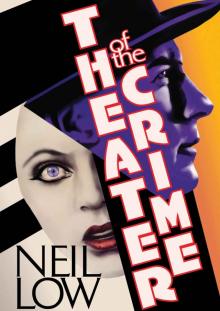 Theater of the Crime (Alan Stewart and Vera Deward Murder Mysteries Book 6)
Theater of the Crime (Alan Stewart and Vera Deward Murder Mysteries Book 6) Red Satin Lips, Book One (The Surrender Series)
Red Satin Lips, Book One (The Surrender Series) Catherine Coulter - FBI 4 The Edge
Catherine Coulter - FBI 4 The Edge StateoftheUnion
StateoftheUnion Fantastic Women: 18 Tales of the Surreal and the Sublime from Tin House
Fantastic Women: 18 Tales of the Surreal and the Sublime from Tin House Sara Wood-Expectant Mistress original
Sara Wood-Expectant Mistress original Nine-to-Five Fantasies: Tales of Sex on the Job
Nine-to-Five Fantasies: Tales of Sex on the Job Granta 133
Granta 133 Dream Quest
Dream Quest The Warlock in Spite of Himself wisoh-2
The Warlock in Spite of Himself wisoh-2 Glenn, Stormy - Mating Heat (Siren Publishing Ménage Amour)
Glenn, Stormy - Mating Heat (Siren Publishing Ménage Amour) Davis, Lexie - Toys from Santa (Siren Publishing Classic)
Davis, Lexie - Toys from Santa (Siren Publishing Classic) Once Dead, Twice Shy
Once Dead, Twice Shy McSweeney's Enchanted Chamber of Astonishing Stories
McSweeney's Enchanted Chamber of Astonishing Stories Zombies: Shambling Through the Ages
Zombies: Shambling Through the Ages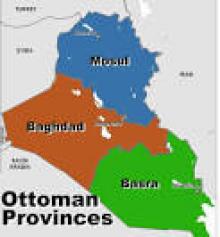 Baghdad Without a Map
Baghdad Without a Map Banshee Cries (the walker papers)
Banshee Cries (the walker papers)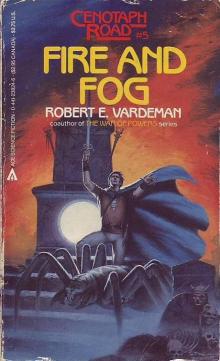 Fire and Fog cr-5
Fire and Fog cr-5 The Twelve Hot Days of Christmas
The Twelve Hot Days of Christmas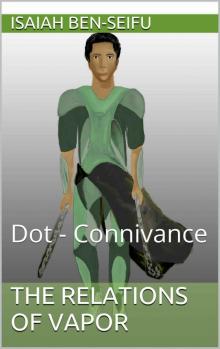 The Relations of Vapor: Dot - Connivance
The Relations of Vapor: Dot - Connivance![Harris, Daisy - Mere Temptation [Ocean Shifters 1] (Siren Publishing Classic) Read online](http://i1.bookreadfree.com/i2/04/11/harris_daisy_-_mere_temptation_ocean_shifters_1_siren_publishing_classic_preview.jpg) Harris, Daisy - Mere Temptation [Ocean Shifters 1] (Siren Publishing Classic)
Harris, Daisy - Mere Temptation [Ocean Shifters 1] (Siren Publishing Classic)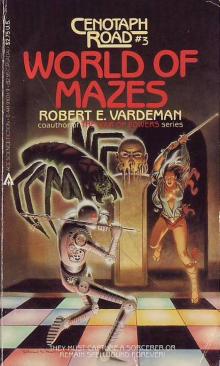 World of Mazes cr-3
World of Mazes cr-3 Mistaken Identity (A Jules Poiret Mystery Book 26)
Mistaken Identity (A Jules Poiret Mystery Book 26)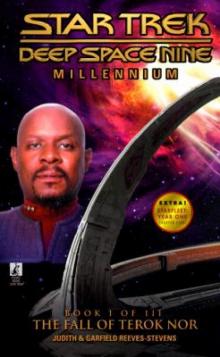 Star Trek - DS9 - Fall of Terok Nor
Star Trek - DS9 - Fall of Terok Nor Not Like I'm Jealous or Anything: The Jealousy Book (Ruby Oliver)
Not Like I'm Jealous or Anything: The Jealousy Book (Ruby Oliver) Skaterboy by J. M. Snyder
Skaterboy by J. M. Snyder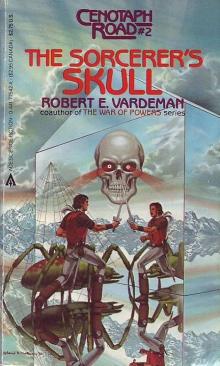 The Sorcerer_s Skull cr-2
The Sorcerer_s Skull cr-2 The Columbia Anthology of Modern Japanese Literature (Modern Asian Literature Series)
The Columbia Anthology of Modern Japanese Literature (Modern Asian Literature Series) New Erotica 5
New Erotica 5 Catherine Coulter - FBI 3 The Target
Catherine Coulter - FBI 3 The Target Best Sex Writing 2013: The State of Today's Sexual Culture
Best Sex Writing 2013: The State of Today's Sexual Culture Factoring Humanity
Factoring Humanity Huia Short Stories 11
Huia Short Stories 11 Call of the Wilds
Call of the Wilds Great English Short Stories (Dover Thrift Editions)
Great English Short Stories (Dover Thrift Editions)![Ramagos, Tonya - Logan's Lessons [Sunset Cowboys 2] (Siren Publishing Classic) Read online](http://i1.bookreadfree.com/i2/04/10/ramagos_tonya_-_logans_lessons_sunset_cowboys_2_siren_publishing_classic_preview.jpg) Ramagos, Tonya - Logan's Lessons [Sunset Cowboys 2] (Siren Publishing Classic)
Ramagos, Tonya - Logan's Lessons [Sunset Cowboys 2] (Siren Publishing Classic)![Morgan, Nicole - Sweet Redemption [Sweet Awakenings 1] (Siren Publishing Allure) Read online](http://i1.bookreadfree.com/i2/04/10/morgan_nicole_-_sweet_redemption_sweet_awakenings_1_siren_publishing_allure_preview.jpg) Morgan, Nicole - Sweet Redemption [Sweet Awakenings 1] (Siren Publishing Allure)
Morgan, Nicole - Sweet Redemption [Sweet Awakenings 1] (Siren Publishing Allure)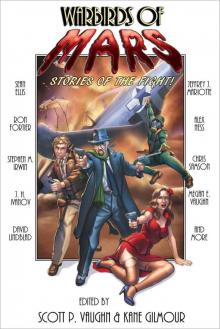 Warbirds of Mars: Stories of the Fight!
Warbirds of Mars: Stories of the Fight! Original Version of Edited Godwin Stories(lit)
Original Version of Edited Godwin Stories(lit) Where The Hell is Boulevard?
Where The Hell is Boulevard?![Chemical [se]X Read online](http://i1.bookreadfree.com/i2/04/13/chemical_sex_preview.jpg) Chemical [se]X
Chemical [se]X Allison Brennan - See No Evil
Allison Brennan - See No Evil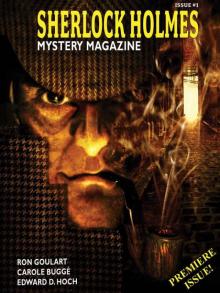 Sherlock Holmes Mystery Magazine #1
Sherlock Holmes Mystery Magazine #1